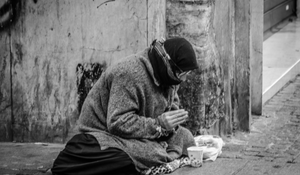Whether you’ve been struggling to get a diagnosis for mysterious symptoms, or you’re simply trying to get your health back on track, you might feel frustrated by your experiences with doctors. Sometimes, it can be tough to ask for what you really need. Healthcare and social service professionals who use tools like FAMCare can have an easier time managing their patients. In the meantime, these tips can help you learn how to advocate for your own health.
Topics: public health, healthcare, social issues
Employee turnover is becoming a major problem for nonprofits. A 2021 survey by the National Council of Nonprofits of over 1,000 nonprofit organizations found that 42% of responding organizations had job openings for 20% of their positions. Almost half of those responding had more than 30% of their positions vacant.
Topics: Nonprofit General, nonprofit sustainability, social issues
Many who pursue social work careers are naturally compassionate with a high degree of empathy and an even higher work ethic. These are attributes that lend themselves well to working with clients and colleagues but make the need for awareness of possible burnout critical. From poverty and homelessness to mental illness and substance abuse, social workers serve our world’s most vulnerable populations but too often forget they’re vulnerable too.
Topics: social workers, social issues
While serving their country, military personnel may encounter a variety of terrifying situation. Thousands of veterans have been left scarred by their experiences, leading to post-traumatic stress disorder (PTSD). Veteran's PTSD is a significant challenge and a serious issue, but many retired military personnel and their families are unaware of the diagnosis or where to seek treatment. Because PTSD has an impact on mental health and can be hidden, health professionals and other may find it difficult to assess its severity.
Let’s look at some tips and suggestions for assisting veterans and their families who are dealing with PTSD.
Topics: Veterans Issues, mental health, social issues
The title of this blog is a testimony to the noble instincts that engender the highest aspirations of America's social services community. The Stewart B. McKinney Homeless Assistance Act of 1987 initially authorized the Health Care for the Homeless Program. (No one we polled in the past two weeks had any idea that healthcare was available to our homeless population.) In 1996, Congress combined the HCH Program with Community Health Centers, Migrant Health Centers, and Primary Care in Public Housing under the Consolidated Health Center Program. The Patient Protection and Affordable Care Act (ACA) provided additional resources to expand services and delivery sites.
Topics: Homeless & Food Pantry, social issues
As the COVID-19 pandemic begins to recede after killing 1,000,000 of our fellow citizens in two years, social workers who deal in public policy are asking the question, "How did our society let this deadly disease get so out of control and do so much damage?"
Topics: social workers, social issues, Covid-19/Pandemic
Did you know that more than half a million homeless people in the United States?
That figure is concerning in general, but it is even more so when you consider that the causes of homelessness are easily remediable. Many people mistakenly believe that homelessness is the result of a person's own personal failures in life. That could not be further from the truth, as there are numerous other structural issues that are directly responsible for homelessness in America.
Let's look at how structural inequality contributes to homelessness.
Topics: Homeless & Food Pantry, social issues
It's not difficult to find reports on the state of the world's food supply. According to the United Nations, the world's food production will need to increase by 60% by 2050 to feed a projected population of 9.6 billion people. This is a daunting task, made even more difficult by the threat of climate change, which is expected to reduce crop yields by up to 25% in some areas.
Food banks are an important part of the social safety net in the United States. They provide food to those who cannot afford it. Food banks get their supplies from two sources: donations and government surplus. This article will go over how food banks operate.
Topics: Homeless & Food Pantry, social issues
Covid-19 is still a hot topic in both the national and international media. The virus, which originated in Wuhan, China, has caused widespread panic and has had a significant impact on the global economy. The number of confirmed cases fluctuates as one variant runs its course until another new variant appears. Countries are taking drastic measures to try to control the virus's spread and subsequent variants. Millions of people have died as a result of the virus, and many more have been infected. The pandemic has forced businesses to close, disrupted global supply chains, and caused global stock markets to plummet. Economists are concerned that the economic upheaval will continue indefinitely.
Topics: Homeless & Food Pantry, social issues, Covid-19/Pandemic
Turnover in child welfare case workers has reached troubling proportions. In any profession, an annual turnover rate around 10% is considered healthy. In child welfare social work, the most recent annual turnover rate was reported at exceeding 22% in some states. When we asked child welfare case workers that we communicate with on a regular basis what they think the problem is, the consensus was clear.
Topics: caseworkers, social workers, social issues











